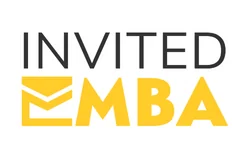
According to Monster’s Future of Work Report, 63% of employers would hire someone with transferable skills and train them for the technical aspects of the job. As incubators and business programs continue to flood the education market, many employers place more value on experience rather than an advanced degree when looking for qualified candidates.
How can you gain the experience you need and level up your transferable skills quickly? A mini-MBA with a focus on real-life practice can help.
Transferable skills, also called universally applicable skills, include qualities like communication, problem-solving, business acumen, and teamwork. When you are equipped with these “soft skills,” or “portable skills” according to Indeed, you are a more highly valued and sought-after employee. Transferable skills don’t only make you more hireable, they are a critical factor in promotions as well.
Some of the most desired skills in the workplace include:
- Critical thinking
- Communication
- Adaptability
- Teamwork
- Creativity
Mini-MBAs like the Invited MBA address skills gaps by providing participants with opportunities to learn through real-life problem-solving and hands-on practice. By putting experience at the forefront of education rather than lecture-based learning, participants have the business acumen and financial literacy to address business challenges in the real world, in interviews, and on their resumes.
You already have a set of skills developed through your education thus far, but to truly accelerate your career, you need to continue building upon them. Here’s how a mini-MBA can help.
Critical Thinking
Critical thinkers see a challenge and visualize potential solutions without being asked. They think before they speak and are often extremely productive employees. Even if you consider problem-solving one of your strengths, critical thinking can be practiced to improve your response time and creativity.
Mini-MBAs are structured for quick, intensive sessions and are ideal for developing critical thinking. The mini-programs are much shorter than traditional degrees (some as short as 12 weeks), which provides an opportunity for participants to think under pressure. Though uncomfortable, this “pressure cooker” environment creates incredibly valuable reasoning and decision-making skills.
Some mini-MBA programs utilize business simulations to immerse students in virtual or hybrid worlds, present them with a role to play, and allow them to act out their ideas and implement changes. Experiential learning like this is far more effective than listening to a professor. The hands-on aspect benefits your retention and ability to recall information when you need it in the real world. It also gives you something to talk about in interviews or on your resume.
Communication
Whether you’re applying for a job, pitching a product, or angling for a promotion, your ability to communicate effectively is critical.
When choosing a mini-MBA, look for programs with a cohort-based structure. This type of accelerator leverages teamwork throughout to create better communicators and leaders. Working well with others is a byproduct of effective communication, which can be taught and honed in a business program.
Another method to improve your communication skills is to participate in group projects and presentations. The Invited MBA presents teams with a capstone project that directly applies to real-world business challenges. This structure allows participants to practice their communication – both in their groups and in front of C-Suite professionals. Repetition is key to perfecting your communication skills.
Adaptability
In a post-Covid work environment, the ability to pivot when circumstances change is highly valued in the workplace. Adaptability is not just a transferable skill, it’s also considered one of the most important qualities of successful leaders. If becoming a CEO or people manager is on your career wish list, you need to find avenues to practice this skill.
One way mini-MBAs develop participants’ adaptability is through forced redirects during group or individual projects. The Invited MBA uses real-life examples like natural disasters or staffing problems to challenge students throughout their projects, forcing them to divert from their original plans and strategically improvise.
Learning in a team environment also allows participants to observe the behavior of their peers, providing another touchpoint and perspective to what an adaptive decision-maker looks like and how they too can improve those skills.
Teamwork
Teamwork has been included in all of the previous transferable skills because it’s critical to long-term, professional success. Working well with others isn’t always easy, but it is an increasing priority to hiring managers and companies.
When exploring business programs, courses, or accelerators, you need to prioritize social learning. Individual projects, though often helpful, don’t require teamwork or interaction with others. Instead, look for group projects that allow you to listen, speak, and learn from people with different perspectives, from different backgrounds, and with varied opinions. Teamwork is created through implementation, and it’s one of the easiest skills to master with practice.
Creativity
Creativity is not just for graphic designers or PR agents. To succeed in any industry, you must embrace creative solutions in the workplace. Some examples of creativity in action include reprioritizing your time when an urgent project comes up, looking for trends in data without context, or improving a process by looking at it from a new perspective.
Mini-MBAs like the Invited MBA, are themselves a creative solution to the problem of equitable business education. Mini-MBAs are far more cost-effective programs and don’t require participants to quit their jobs or put their life on hold. By choosing a mini-MBA, you can speak to your ability to discern the lesser ROI of a traditional 2-year MBA.
About The Invited MBA:
A highly collaborative, social learning-based program, the Invited MBA builds communication, teamwork, business acumen, decision-making, financial literacy, and problem-solving skills to accelerate your professional growth. Your career path is unique to you – your business education should be too. Learn more here.

 Katelyn Powell is a social media and content strategist, lifelong learner, and career development enthusiast living in Houston, Texas. She is passionate about equitable access to education and the Oxford comma. When she’s not writing or binge-reading true crime, she enjoys providing wedding photography to Texas brides and afternoon naps.
Katelyn Powell is a social media and content strategist, lifelong learner, and career development enthusiast living in Houston, Texas. She is passionate about equitable access to education and the Oxford comma. When she’s not writing or binge-reading true crime, she enjoys providing wedding photography to Texas brides and afternoon naps.





Questions about this article? Email us or leave a comment below.